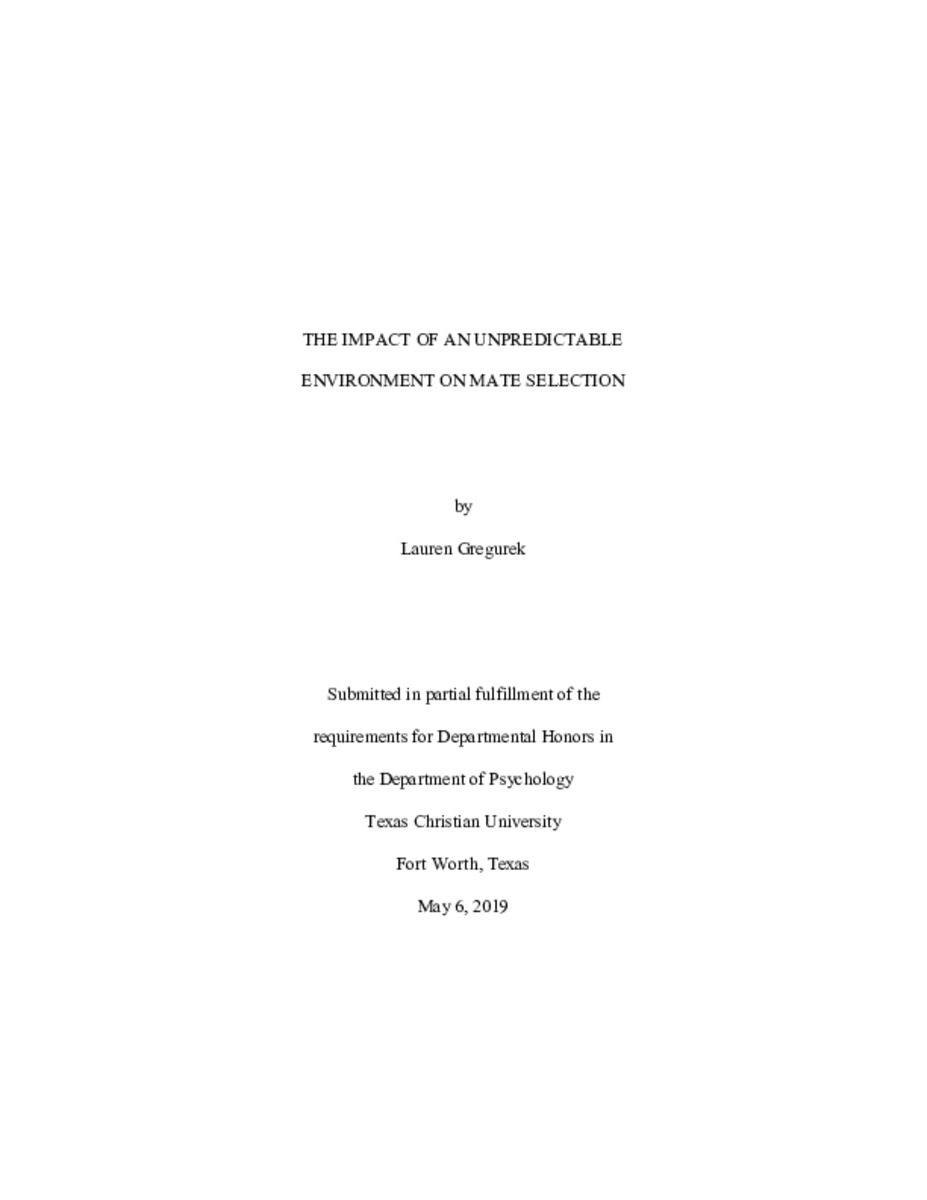The Impact of an Unpredictable Environment on Mate SelectionShow full item record
| Title | The Impact of an Unpredictable Environment on Mate Selection |
|---|---|
| Author | Gregurek, Lauren |
| Date | 2019 |
| Abstract | The current research examines the impact of climate change on women's mating strategies. The specific mating strategy this research observed is known as extra-pair mating and was examined in college women ages 18 to 24. Previous research indicates females might initiate extra pair mating (infidelity in a monogamous relationship) in unpredictable environments. This research uses climate change and potential outcomes for the future as a parallel to environmental uncertainty and assesses female's openness to infidelity. The results demonstrated there was no measurable relationship between exposure to the unpredictable environments associated with climate change and attitudes towards cheating. Further investigating the nature of the study proposes limitations to the timing of the study (the end of a spring academic semester), and questions if participants were more concerned with academic failure (control) than climate change (prime). There is also a possibility that even though the climate change prime was intended to make participants think about its outcomes for the near future, the concept of climate change might still be considered too far off and theoretical to consider it a threat. With these confounds in mind, future research would be needed to determine if there is a true correlation. Overall, this research is important because finding a parallel between extra pair mating and unpredictable environments could have the ability to impact society enough and trigger the realization that climate change affects humans on a very deep level. |
| Link | https://repository.tcu.edu/handle/116099117/27009 |
| Department | Psychology |
| Advisor | Hill, Sarah |
| Additional Date(s) | 2019-05-19 |
Files in this item
This item appears in the following Collection(s)
- Undergraduate Honors Papers [1463]
© TCU Library 2015 | Contact Special Collections |
HTML Sitemap



